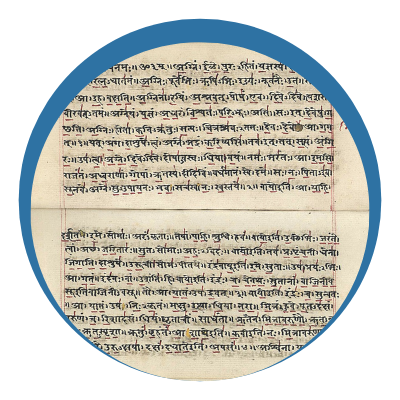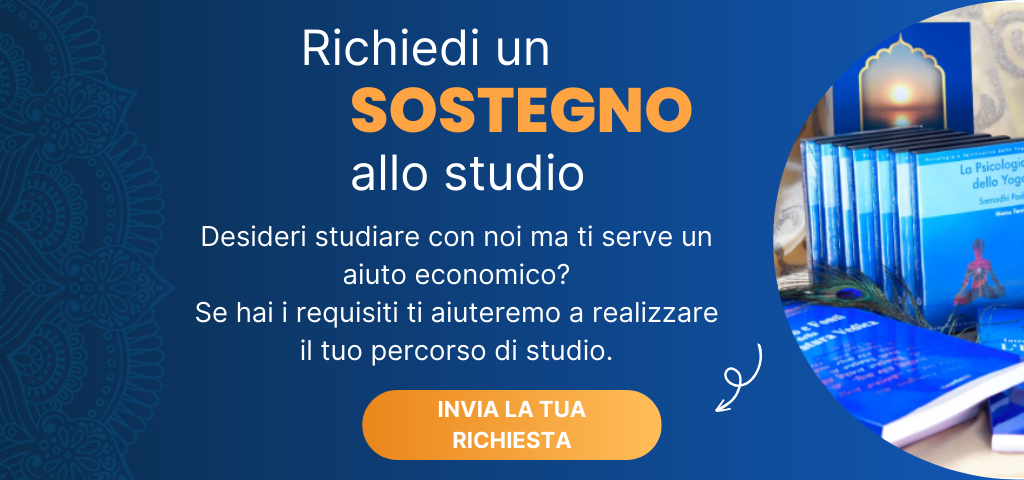Vaishnava Theology

Past and future have no ontological reality; only the present is real in the dimension of the soul. Let's get serious about the here and now, and most worries will cease to exist.
The purpose is to revolutionize your consciousness, to give you tools for getting to know yourself in depth, to live with self-awareness, conscious of the inner and outer wolrds, of your eternal nature beyond the changing mutations of what is temporary, and of the universal laws that govern your existence.

It was theology to have the most significant influence in the vast landscape of traditional Indian culture. There, we can indeed find the roots of mankind and of the universe, the knowledge to attain a complete vision of the world and life principles that allow to transcend obstacles, conditionings and crisis.
It fascinates through its abundance of teachings on humanity, divinity and nature. Rich in symbolism, ethical and spiritual values, it concretely fosters the harmonious development of personality, orienting towards the concrete experience of the relationship with the Divine in the communion of love with all creatures.
comunione d’amore con tutte le creature.


4 EDUCATIONAL LEVELS
More than 90 subjects available

INTRODUCTORY

IN-DEPTH

ADVANCED
+

MASTER
+

STUDY FROM HOME

TUTORING
Tutoring via Skype, webcam, in person at the CSB Campus in Ponsacco (Tuscany), in your city or during the CSB seminars.

RECOGNISED CREDITS
For each course level:
-
 Exclusive books
Exclusive books -
 Audios e videos
Audios e videos -
 Live streaming and on-demand classes
Live streaming and on-demand classes -
 Tutor assistance
Tutor assistance -
 Mind-maps
Mind-maps -
 Guided practice sessions
Guided practice sessions -
 Private Online Space
Private Online Space -
 Experiential and residential seminars in Italy and India (optional)
Experiential and residential seminars in Italy and India (optional) -
 In-depth workshops with our teachers
In-depth workshops with our teachers -
 Exam preparation
Exam preparation -
 Online exams (with written and oral test)
Online exams (with written and oral test) -
 Exams (with written and oral test) at the CSB Campus or during the seminars
Exams (with written and oral test) at the CSB Campus or during the seminars -
 Certificate of completion
Certificate of completion

ASK FOR MORE INFORMATION

BASIC SUBJECTS
INTRODUCTORY COURSE:
3 basic subjects
3 basic subjects
-
 Context and Sources of Vedic Literature
Context and Sources of Vedic Literature -
 Philosophy of the Bhagavad-Gita
Philosophy of the Bhagavad-Gita -
 Philosophy of the Upanishads:
Philosophy of the Upanishads:
Connections between micro- and macro-cosmos
IN-DEPTH COURSE:
6 basic subjects
6 basic subjects
-
 Context and Sources of Vedic Literature
Context and Sources of Vedic Literature -
 Philosophy of the Bhagavad-Gita
Philosophy of the Bhagavad-Gita -
 Philosophy of the Upanishads
Philosophy of the Upanishads
Connections between micro- and macro-cosmos -
 Vedanta Philosophy I
Vedanta Philosophy I -
 Vedanta Philosophy II
Vedanta Philosophy II -
 Vaishnava Philosophy
Vaishnava Philosophy
ADVANCED LEVEL:
9 basic subjects + 1 subject choice
9 basic subjects + 1 subject choice
-
 Context and Sources of Vedic Literature
Context and Sources of Vedic Literature -
 Philosophy of the Bhagavad-Gita
Philosophy of the Bhagavad-Gita -
 Philosophy of the Upanishads
Philosophy of the Upanishads
Connections between micro- and macro-cosmos -
 Vedanta Philosophy I
Vedanta Philosophy I -
 Vedanta Philosophy II
Vedanta Philosophy II -
 Vaishnava Philosophy
Vaishnava Philosophy -
 The Path of Bhakti: Naradabhaktisutra
The Path of Bhakti: Naradabhaktisutra
Narada’s Sutras on Divine Love -
 Upadeshamrita:
Upadeshamrita:
The Nectar of Teaching -
 Mystic Literature.
Mystic Literature.
Study subject choices
- From Eros to Love
- Karmic Affinities and Emotional Relationships
- Betrayal, Grudge and Forgiveness
- Art as Yoga Between India and the West
- The Art of Listening Sound and Psyche
- Myths and Symbols in the Indo-Vedic Civilisation
- Ethics and Aesthetics
- Fundamentals of Vastu Architecture Science and Art of Living Space
- The Universe within Architecture Practical application of Vastu
- History of the Indo-Vedic Civilisation
- Indo-Vedic Archaeology
- History of Indo-Vedic Art
- Theories and Methodologies for Holistic Health
- Fundamentals of Ayurveda
- Ayurveda and the Mind
- Yoga e Ayurveda
- Science of Nutrition Introductory Elements
- Science of Nutrition in Ayurveda
- Ayurveda e la scienza dell’autoguarigione
- Ayurveda and Pancakarma
- Fundamentals of Yoga-therapy
- Theory and Practice of Meditatione
- Fundamentals of Mantra-therapy
- Theory and Practice of Yoga Neurofeedback
- Yoga and Holistic Health
- Thoughts, Emotions and Realisations
- Physiology of Emotions Yoga Science and Art of Communication and Relationships
- Vairagya – Ontology of Emotions Origins and Nature of Emotions
- Emotional Development of Emotions
- Emotional Training
- Bioenergetics of Emotions
- Asana and Pranayama For the Harmonisation of Emotions
- Context and Sources of Vedic Literature
- Dante’s Journey and the Bhagavad-Gita Psychological Experiences of Hell, Purgatory and Paradise for Contemporary Mankind e Paradiso per l’uomo contemporaneo
- Introduction to the Bhagavad-Gita Divinity, Humanity and Nature
- Bhagavad-gita I The vision and Promise of Love
- Bhagavad-gita II Wisdom and Love: The Yoga of Acting
- Bhagavad-gita III Faith that Thinks, Acts and Loves
- Bhagavad-gita IV ourney for the Discovery of Happiness
- Bhagavad-gita V Metaphors of Life and Development of Spiritual Vision
- Bhagavad-gita VI Knowledge, Freedom and Love
- Bhagavad-gita VII From Humanity to Divinity
- Bhagavad-gita VIII The Nature of Being and the Science of Living
- Bhagavad-gita IX From Restlessness to Bliss
- Bhagavad-gita X The Art of Acting, The Freedom of Choosing
- Bhagavad-gita XI The Courage to Love
- Bhagavad-gita XII Knowledge for Conscious Choices
- Bhagavad-gita XIII The Ultimate Teaching
- Epic Literature I The Mahabharata
- Epic Literatur II Ramayana
- Mystic Literature
- Puranic Literature I The Ancient Narrations of the Bhagavata Purana
- Puranic Literature II Ancient Narrations of the Bhagavata Purana
- Elements of Sanksrit Language
- The 4 Sampradayas or Traditional Schools
- Brihadaranyaka Upanishad
- Chandogya Upanishad
- Shvetashvatara Upanishad
- Aitareya Upanishad
- Taittiriya Upanishad
- Isha Upanishad
- Yoga Psychology of the Life Cycle
- Life, Death and Immortality in the Indo-Vedic Civilisation
- Assistence to Terminal Patients and their Relatives
- The Soul’s Journey after Death
- Vedic-Puranic Cosmogony
- Consciousness and Origin of the Universe/li>
- Philosophy of the Upanishads Connections Between Micro- and Macro-Cosmos
- Philosophy of the Bhagavad-Gita I
- Philosophy of the Bhagavad-Gita II
- Samkhya Philosophy Nature and Origin Life
- The Science of Vedanta
- Vedanta Philosophy I
- Vedanta Philosophy II
- Philosophy of the Six Darshana Perspectives of the World and Visions of Reality
- Vaishnava Philosophy
- Karma and Reincarnation
- Compared Psychological Models
- India and the West
- Psychology of the Bhagavad-Gita
- Samkhya Psychology Mankind and the Universe
- Yoga Psychology I Samadhi Pada: How to Realise Oneself
- Yoga Psychology II Sadhana Pada: The Value of Spiritual practice
- Yoga Psychology III Vibhuti Pada: The Awakening of Higher Faculties
- Yoga Psychology IV Kaivalya Pada: Freedom from Conditionings and Suffering
- Psychology of the Upanishads Stages of Consciousness and Personality Compon
- Vedanta Psychology The Self and the Functions of the Psyche
- The Role of Will in the Transformation of the Unconscious and in the Development of Deficient Faculties
- Foresight, Management and Overcoming of Crises
- Psychology of the Leadership of Wellbeing
- Thought, Action and Destiny
- Freedom from Loneliness and Suffering
- Sociology and Anthropology
- Pedagogy The Educational Ideal in Indo-Vedic Culture
- The 26 Qualities of the Spiritual Researcher
- Divinity, Humanity and Nature
- The Nectar of Devotion
- Upadeshamrita The Nectar of Teaching
- The Science of Bhakti I Tattva Sandarbha, the Treatise on Truths
- The Science of Bhakti II Bhagavat Sandarbha, Nature and Qualities of God
- The Science of Bhakti III Paramatma Sandarbha: God in the Heart of Every Living Being
- Narada Bhaktisutra Narada’s Sutras on Divine Love
- Harinama Cintamani Meditation in the Yoga of Love
- Technology of Meditation on the Holy Names
MASTER LEVEL:
9 basic subjects + 6 subject choices
9 basic subjects + 6 subject choices
-
 Context and Sources of Vedic Literature
Context and Sources of Vedic Literature -
 Philosophy of the Bhagavad-Gita
Philosophy of the Bhagavad-Gita -
 Philosophy of the Upanishads
Philosophy of the Upanishads
Connections between micro- and macro-cosmos -
 Vedanta Philosophy I
Vedanta Philosophy I -
 Vedanta Philosophy II
Vedanta Philosophy II -
 Vaishnava Philosophy
Vaishnava Philosophy -
 The Path of Bhakti: Naradabhaktisutra
The Path of Bhakti: Naradabhaktisutra
Narada’s Sutras on Divine Love -
 Upadeshamrita:
Upadeshamrita:
The Nectar of Teaching -
 Mystic Literature.
Mystic Literature.
Study subject choices
- From Eros to Love
- Karmic Affinities and Emotional Relationships
- Betrayal, Grudge and Forgiveness
- Art as Yoga Between India and the West
- The Art of Listening Sound and Psyche
- Myths and Symbols in the Indo-Vedic Civilisation
- Ethics and Aesthetics
- Fundamentals of Vastu Architecture Science and Art of Living Space
- The Universe within Architecture Practical application of Vastu
- History of the Indo-Vedic Civilisation
- Indo-Vedic Archaeology
- History of Indo-Vedic Art
- Theories and Methodologies for Holistic Health
- Fundamentals of Ayurveda
- Ayurveda and the Mind
- Yoga e Ayurveda
- Science of Nutrition Introductory Elements
- Science of Nutrition in Ayurveda
- Ayurveda e la scienza dell’autoguarigione
- Ayurveda and Pancakarma
- Fundamentals of Yoga-therapy
- Theory and Practice of Meditatione
- Fundamentals of Mantra-therapy
- Theory and Practice of Yoga Neurofeedback
- Yoga and Holistic Health
- Thoughts, Emotions and Realisations
- Physiology of Emotions Yoga Science and Art of Communication and Relationships
- Vairagya – Ontology of Emotions Origins and Nature of Emotions
- Emotional Development of Emotions
- Emotional Training
- Bioenergetics of Emotions
- Asana and Pranayama For the Harmonisation of Emotions
- Context and Sources of Vedic Literature
- Dante’s Journey and the Bhagavad-Gita Psychological Experiences of Hell, Purgatory and Paradise for Contemporary Mankind e Paradiso per l’uomo contemporaneo
- Introduction to the Bhagavad-Gita Divinity, Humanity and Nature
- Bhagavad-gita I The vision and Promise of Love
- Bhagavad-gita II Wisdom and Love: The Yoga of Acting
- Bhagavad-gita III Faith that Thinks, Acts and Loves
- Bhagavad-gita IV ourney for the Discovery of Happiness
- Bhagavad-gita V Metaphors of Life and Development of Spiritual Vision
- Bhagavad-gita VI Knowledge, Freedom and Love
- Bhagavad-gita VII From Humanity to Divinity
- Bhagavad-gita VIII The Nature of Being and the Science of Living
- Bhagavad-gita IX From Restlessness to Bliss
- Bhagavad-gita X The Art of Acting, The Freedom of Choosing
- Bhagavad-gita XI The Courage to Love
- Bhagavad-gita XII Knowledge for Conscious Choices
- Bhagavad-gita XIII The Ultimate Teaching
- Epic Literature I The Mahabharata
- Epic Literatur II Ramayana
- Mystic Literature
- Puranic Literature I The Ancient Narrations of the Bhagavata Purana
- Puranic Literature II Ancient Narrations of the Bhagavata Purana
- Elements of Sanksrit Language
- The 4 Sampradayas or Traditional Schools
- Brihadaranyaka Upanishad
- Chandogya Upanishad
- Shvetashvatara Upanishad
- Aitareya Upanishad
- Taittiriya Upanishad
- Isha Upanishad
- Yoga Psychology of the Life Cycle
- Life, Death and Immortality in the Indo-Vedic Civilisation
- Assistence to Terminal Patients and their Relatives
- The Soul’s Journey after Death
- Vedic-Puranic Cosmogony
- Consciousness and Origin of the Universe/li>
- Philosophy of the Upanishads Connections Between Micro- and Macro-Cosmos
- Philosophy of the Bhagavad-Gita I
- Philosophy of the Bhagavad-Gita II
- Samkhya Philosophy Nature and Origin Life
- The Science of Vedanta
- Vedanta Philosophy I
- Vedanta Philosophy II
- Philosophy of the Six Darshana Perspectives of the World and Visions of Reality
- Vaishnava Philosophy
- Karma and Reincarnation
- Compared Psychological Models
- India and the West
- Psychology of the Bhagavad-Gita
- Samkhya Psychology Mankind and the Universe
- Yoga Psychology I Samadhi Pada: How to Realise Oneself
- Yoga Psychology II Sadhana Pada: The Value of Spiritual practice
- Yoga Psychology III Vibhuti Pada: The Awakening of Higher Faculties
- Yoga Psychology IV Kaivalya Pada: Freedom from Conditionings and Suffering
- Psychology of the Upanishads Stages of Consciousness and Personality Compon
- Vedanta Psychology The Self and the Functions of the Psyche
- The Role of Will in the Transformation of the Unconscious and in the Development of Deficient Faculties
- Foresight, Management and Overcoming of Crises
- Psychology of the Leadership of Wellbeing
- Thought, Action and Destiny
- Freedom from Loneliness and Suffering
- Sociology and Anthropology
- Pedagogy The Educational Ideal in Indo-Vedic Culture
- The 26 Qualities of the Spiritual Researcher
- Divinity, Humanity and Nature
- The Nectar of Devotion
- Upadeshamrita The Nectar of Teaching
- The Science of Bhakti I Tattva Sandarbha, the Treatise on Truths
- The Science of Bhakti II Bhagavat Sandarbha, Nature and Qualities of God
- The Science of Bhakti III Paramatma Sandarbha: God in the Heart of Every Living Being
- Narada Bhaktisutra Narada’s Sutras on Divine Love
- Harinama Cintamani Meditation in the Yoga of Love
- Technology of Meditation on the Holy Names

Enrolment is open throughout the year.

Via A. Manzoni 9/a Ponsacco (PI)
T. +39 320-3264838



